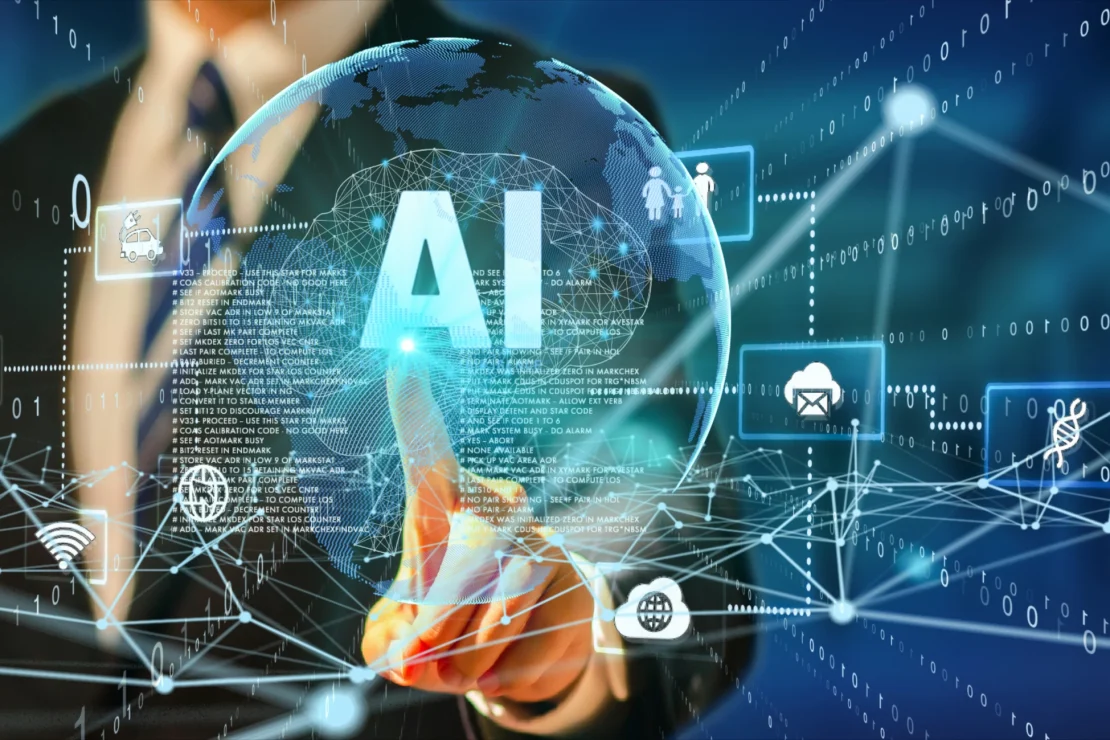
Welcome to the era of Artificial Intelligence (AI), where technological advancements are revolutionizing every industry, including reporting. Gone are the days of manually sifting through mountains of data and spending countless hours on analysis. AI-powered reporting is here to streamline processes, enhance accuracy, and elevate decision-making like never before.
In this blog post, we will explore how AI is reshaping industry-specific reporting and uncover its incredible benefits. From finance to healthcare, manufacturing to retail – no sector is immune to the transformative power of AI in generating meaningful insights from overwhelming amounts of information. So buckle up and get ready for a journey into the future of reporting!
The Benefits of AI-Powered Reporting
The benefits of AI-powered reporting are vast and significant. With the help of artificial intelligence, businesses can streamline their reporting processes and gain valuable insights that were previously unattainable.
One major advantage of AI in reporting is its ability to analyze large volumes of data quickly and accurately. The traditional method of manually analyzing data is time-consuming and prone to human error. By utilizing AI algorithms, companies can process massive amounts of data in a fraction of the time, allowing for faster decision-making.
Furthermore, AI-powered reporting can uncover patterns and trends within data sets that may have gone unnoticed by human analysts. This kind of analysis enables businesses to make more informed decisions based on real-time information rather than relying solely on intuition or past experiences.
Another benefit is the reduction in costs associated with manual reporting tasks. By automating repetitive tasks such as data collection, cleaning, and formatting, employees are freed up to focus on more strategic activities that require critical thinking skills. This not only increases productivity but also improves overall efficiency within an organization.
In addition to these advantages, AI-powered reporting can enhance accuracy by minimizing human bias. Humans are inherently subjective creatures who may unintentionally introduce biases into their reports through conscious or unconscious influences. With AI-driven algorithms handling the analysis and interpretation process, there is less room for bias to impact the results.
Incorporating AI into industry-specific reporting offers numerous benefits including increased speed and accuracy, enhanced decision-making capabilities through improved data analysis, cost savings from automation of tedious tasks,and reduced risk from biased interpretations.
Industry-Specific Applications of AI in Reporting
AI technology has revolutionized the way industries approach reporting by providing tailored and efficient solutions. In healthcare, for example, AI algorithms can analyze patient data to identify patterns and predict potential health risks. This enables medical professionals to make informed decisions and improve patient outcomes.
AI-powered reporting tools can process vast amounts of financial data in real-time, identifying trends and anomalies that may have gone unnoticed before. This helps financial institutions detect fraud or potential risks more effectively.
The manufacturing sector benefits from AI’s ability to optimize production processes through predictive maintenance. By analyzing machine data, AI systems can anticipate equipment failures and plan maintenance activities accordingly, reducing downtime and improving overall productivity.
AI is also transforming the retail industry by enabling personalized product recommendations based on a customer’s preferences and purchase history. This not only enhances the shopping experience but also increases sales conversion rates.
Furthermore, media companies are using AI algorithms to automatically generate news articles based on raw data inputs such as earnings reports or sports statistics. This streamlines the reporting process while maintaining accuracy.
These industry-specific applications demonstrate how AI is reshaping reporting practices across various sectors. As technology continues to advance, we can expect even more innovative uses of AI in reporting that will further enhance decision-making processes and drive business success.
Examples of Companies Utilizing AI for Reporting
- Google: As a leader in AI technology, Google has incorporated AI into its reporting processes. One notable example is its use of natural language processing algorithms to analyze and summarize news articles for its Google News platform. This allows users to quickly get the main points of a story without having to read through the entire article.
- IBM: IBM’s Watson Analytics uses AI-powered data analysis to provide valuable insights for businesses. By analyzing large amounts of data and identifying patterns, Watson can generate accurate predictions and recommendations that help companies make informed decisions.
- Salesforce: Salesforce Einstein Analytics leverages AI capabilities to provide personalized insights and recommendations based on customer data. It helps sales teams identify potential opportunities, optimize their strategies, and improve overall performance.
- Amazon: The retail giant utilizes machine learning algorithms to enhance its product recommendation system. By analyzing user behavior and purchase history, Amazon’s algorithm suggests items that customers are likely interested in, increasing sales and customer satisfaction.
- Uber: Uber relies heavily on real-time data analysis enabled by AI technologies for efficient reporting purposes such as surge pricing, route optimization, and driver allocation based on demand patterns.
- Microsoft : Microsoft Power BI incorporates advanced analytics features like sentiment analysis powered by Azure Cognitive Services’ natural language processing capabilities.
This enables organizations across various industries to gain meaningful insights from their data more easily.
These examples demonstrate how companies across different sectors are harnessing the power of artificial intelligence in their reporting processes to streamline operations, improve decision-making accuracy,and drive growth.
Conclusion
In this rapidly evolving digital landscape, AI is revolutionizing industry-specific reporting in ways we never thought possible. With its ability to analyze vast amounts of data, identify patterns, and generate insights at lightning speed, AI-powered reporting is transforming the way businesses operate.
The benefits of AI in reporting are undeniable. It not only saves time and resources but also improves accuracy and decision-making processes. Companies across various industries are harnessing the power of AI to gain a competitive edge and stay ahead in today’s data-driven world.
From healthcare to finance, manufacturing to retail, there are countless applications for AI in industry-specific reporting. Whether it’s predicting customer behavior or detecting anomalies on production lines, AI technology continues to push the boundaries of what is possible.
Many companies have already embraced AI for their reporting needs. Amazon uses machine learning algorithms to optimize inventory management and predict future demand accurately. IBM’s Watson Health leverages natural language processing capabilities to uncover valuable insights from medical records and research papers.
As we continue down this path of technological advancement, it is clear that AI will play an increasingly vital role in shaping industry-specific reporting further. The potential for growth and innovation seems limitless as more organizations recognize the value that can be derived from embracing artificial intelligence.
While there may still be challenges ahead – such as data privacy concerns or ethical considerations – it is crucial that businesses embrace these advancements responsibly. By doing so, they can unlock new opportunities and drive meaningful change within their respective industries.

